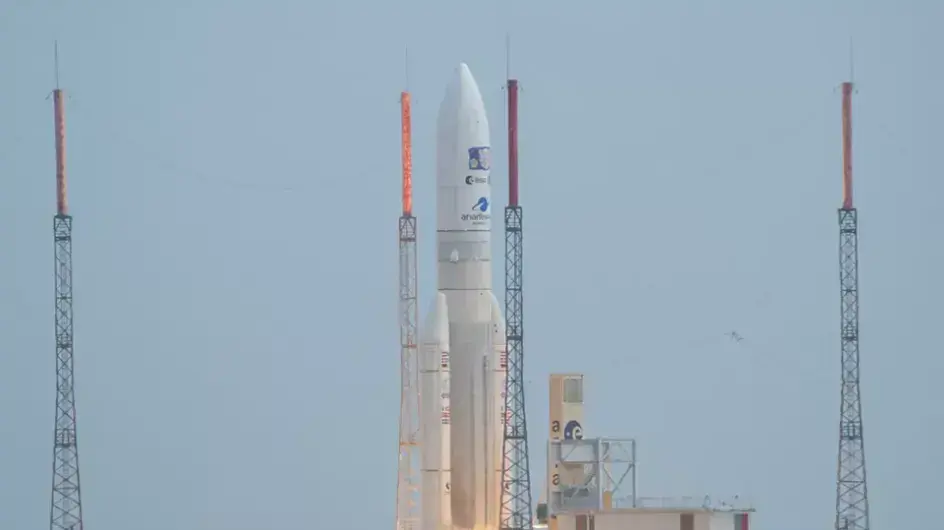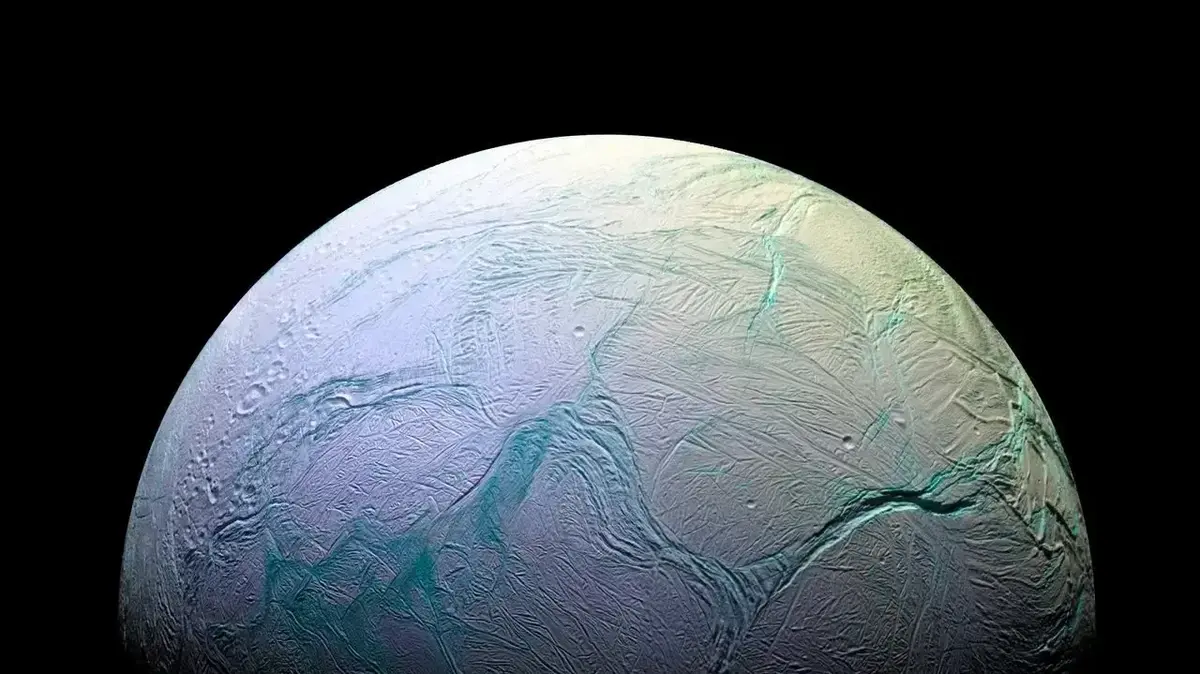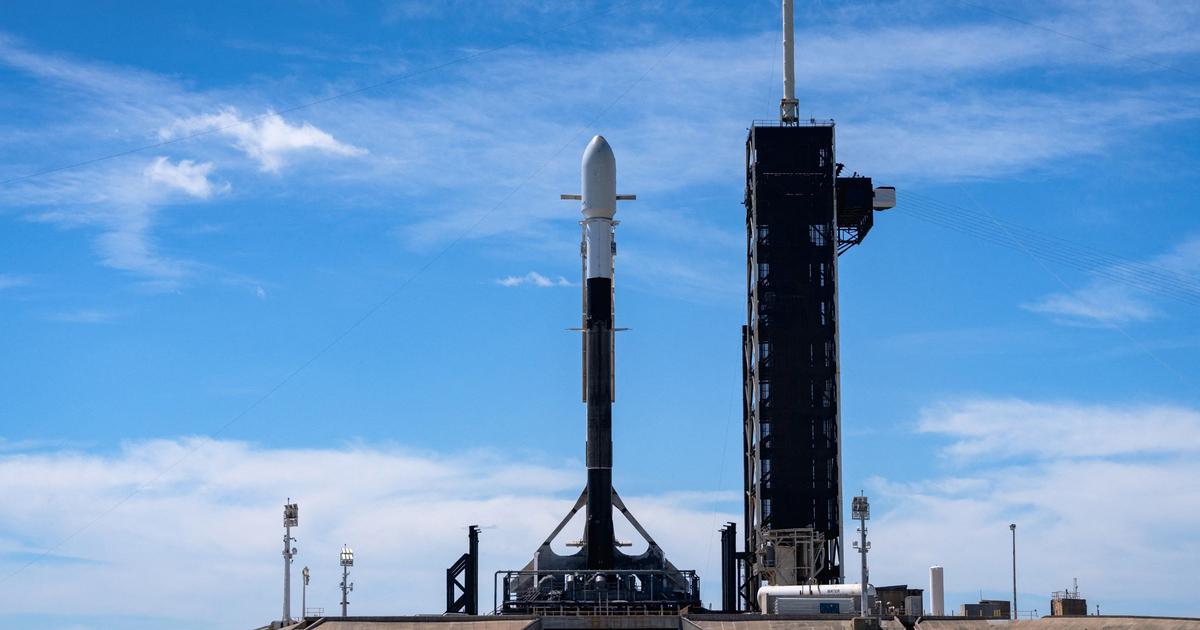On video: the launch of an Iranian satellite by Russia from Kazakhstan (Photo: Reuters)
The European Space Agency successfully launched the JUICE satellite yesterday (Friday) towards the largest planet in the solar system, Jupiter.
This, with the aim of finding out if the oceans hidden beneath the surface of Jupiter's icy moons have the potential to host extraterrestrial life.
The satellite, which was launched on an Ariane 5 rocket from the Kourou space base in French Guiana, was supposed to be sent the day before, but the launch was stopped due to the weather.
After the success recorded, joy and relief filled the agency.
"JUICE is coming, Jupiter! Get ready for it," said Andrea Accomazzo, director of operations at the space agency's Mission Control.
"JUICE is coming, Jupiter! Get ready for it."
The launch of the satellite from the Koro space base (photo: official website, BBC)
The CEO of the agency, Dr. Josef Eschbacher, also expressed his pride that the mission, which is worth about 1.6 billion euros, is on a safe path.
"We have taken a very big step towards our goal," he said.
JUICE was sent to explore Jupiter's main moons - Callisto, Ganymede and Europa.
These stars, which are considered to be huge reservoirs of liquid water, raise the curiosity of scientists regarding the question - could the moons host life?
Although Jupiter is in the cold, outer regions of the solar system, the moons have great energy potential to power simple ecosystems.
"In the case of the moon Europa, there is thought to be a deep ocean beneath its icy crust," said mission scientist Prof Emma Bunce.
More in Walla!
Report: The Quds Force coordinated with Hezbollah and Hamas the rocket barrage from Lebanon
To the full article
"JUICE is coming, Jupiter! Get ready for it."
The satellite before it was launched (photo: official website, BBC)
Because the rocket would not be able to send the satellite directly to its destination, JUICE was launched into a path around the inner solar system.
It is a journey of 6.6 billion kilometers that is expected to continue for about eight and a half years.
The icy moons Callisto, Ganymede and Europa were discovered by the Italian astronomer Galileo Galilei in 1610. Through the telescope he could see them as small dots moving around Jupiter.
The satellite will explore the moons from afar and will not land on them.
Ganymede, the largest moon in the solar system, is the satellite's final target.
He is expected to finish his tour in 2034.
"We took a very big step towards our goal."
A galaxy about 500 million light years away (photo: official website, NASA, James Webb Telescope)
More in Walla!
The revolution gives its signals: Moody's lowered Israel's credit rating horizon to "stable"
"Hezbollah is under pressure and is baring its teeth": the organization has increased the collection on the Navy, the threat to the rigs is increasing
The perfect gift for a new mother: a gift card for healthy, nutritious and indulgent home-cooked food
The purpose of the mission is to gather more information regarding potential habitats so that subsequent missions can more directly address the question of life.
Scientists are already thinking about how to place landers on one of Jupiter's icy moons in order to drill through its crust to the water sources below.
In addition, the American space agency NASA is expected to send its own satellite called Clipper. Although the American satellite will leave the Earth after JUICE, it is expected to arrive a little before its European brother. This is because of the advantage it has with the help of a more powerful launch rocket. The teams are very eager to cooperate ", said Prof. Carol Mendel, Director of Science at the European Space Agency.
news
world news
Europe
Tags
space
satellite
NASA
European Space Agency
Dispatch
galaxy







/cloudfront-eu-central-1.images.arcpublishing.com/prisa/Q2GFUQLBLVDFDE4G6U6GH2UFJE.png)


/cloudfront-eu-central-1.images.arcpublishing.com/prisa/KMEYMJKESBAZBE4MRBAM4TGHIQ.jpg)



